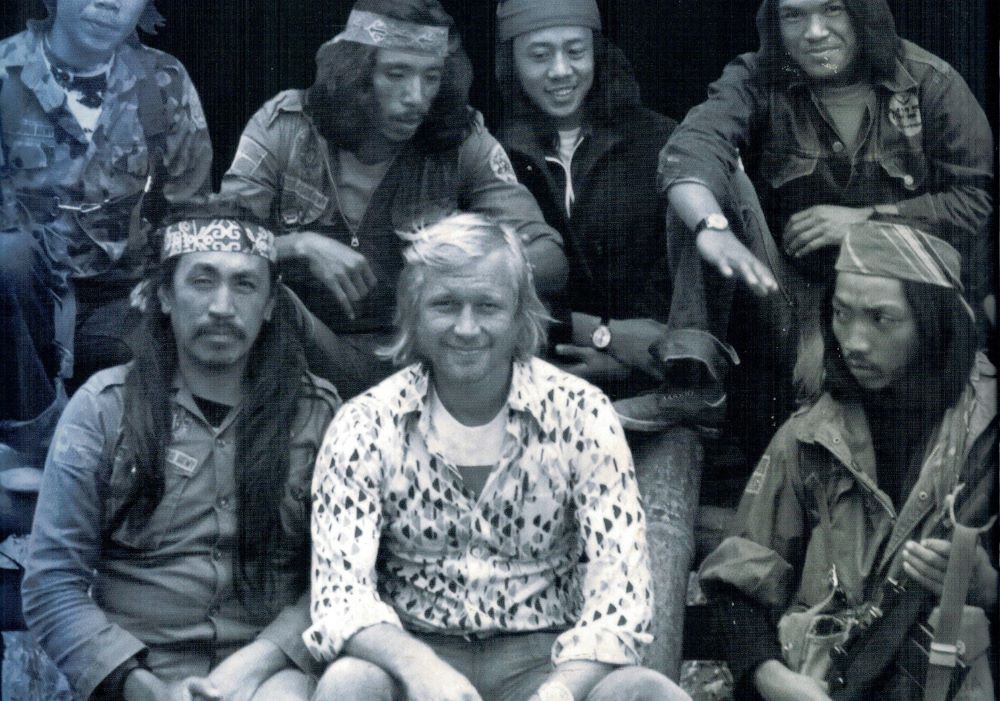
John McBeth, one of Asia’s pre-eminent journalists with a record of scrupulous and groundbreaking reporting, has died after a short illness. He was 79.
Over a career spanning more than 62 years, McBeth helped shape events in countries including South Korea, Thailand, the Philippines, Vietnam, Cambodia and Indonesia. He was a blunt-speaking old-school reporter and author whose writings pulled no punches and influenced many of the region’s policymakers over decades.
McBeth was born in Whanganui, New Zealand, on 31 May 1944, the son of Taranaki dairy farmer Sandy McBeth and Isla Dickenson. After attending New Plymouth Boys’ High School he commenced his journalism career on the Taranaki Herald in 1962 and moved to the Auckland Star in 1965.
Like many New Zealand journalists of that era, he was attracted to London’s Fleet Street and headed off on a cargo ship that inadvertently grounded during a night-time entry into Tanjung Priok harbour in Indonesia.
Stepping ashore, he immediately fell in love with Asia and never left. McBeth took pride in being an Asian ‘lifer’—often chiding many of his colleagues who came to the region for a few years but never stayed.
After spending time in Jakarta and Singapore, McBeth settled in Thailand, where he worked for publications including the Bangkok Post, London’s Daily Telegraph and the Hong Kong–based Asiaweek, and for Agence France-Presse and United Press International.
He was one of the first Western journalists to uncover the Khmer Rouge’s reign of terror in Cambodia, often arriving at the border to interview survivors after a long and arduous overnight bus journey from Bangkok.
McBeth’s reporting of the Khmer Rouge’s purges was initially met with incredulity by many other correspondents. He revealed how Cambodian refugees, unable to cross into Thailand, were forced back into the Khmer Rouge’s minefields.
His early reporting from Thailand focused on the Indochinese refugee crisis and the Vietnam War, as he wrote with passion about the plight of refugees and war victims.
He exposed the Thai pirates who raped and murdered Vietnamese boatpeople.
In May 1979, McBeth joined the staff of the Far Eastern Economic Review, then Asia’s top political and economic affairs publication. He covered five coups, including the abortive one that killed his close friend, Australian cameraman Neil Davis, in 1985.
McBeth was a larger-than-life member of Bangkok’s hard-living and hardworking international press corps, loving Thailand and its people. It was in Bangkok that he met his future wife, Yuli Ismartono, a prominent foreign correspondent from Indonesia.
He wrote analytical pieces and many exclusive reports from offices in Bangkok, Seoul, Manila and Jakarta.
Collaborating with colleagues Nayan Chandra and Shada Islam, McBeth broke the story that North Korea was developing a nuclear weapon.
While based in Manila, McBeth had a leg amputated, but he was determined the setback would not impinge on his career and he was soon back writing exclusives for the Review. Yuli helped him through his illness and restored his confidence so he could return to field reporting.
He wrote about Filipino warlords, the fall of Indonesia’s President Suharto and, in a series of articles in 2002, he covered comprehensively the Bali bombings, among countless other stories.
From the end of 2004 until early 2015, John wrote columns for the Singapore Straits Times, specialising in Indonesian and regional affairs.
His work has also appeared in The National (Abu Dhabi), the Nikkei Asian Review, the South China Morning Post, The Strategist and more recently the Asia Times. McBeth’s 2011 book, Reporter: forty years covering Asia, describes many of his experiences.
In 2016, he wrote The loner: President Yudhoyono’s decade of trial and indecision, which reviewed the decade that Susilo Bambang Yudhoyono spent in power.
McBeth was a confidante of many of Asia’s diplomats, politicians and policymakers.
He was a mentor and inspiration to many of the region’s journalists, particularly those working for local publications, and railed against journalists whose writings failed to make clear what was fact and what was opinion.
John McBeth is survived by Yuli, and a host of friends and admirers.

